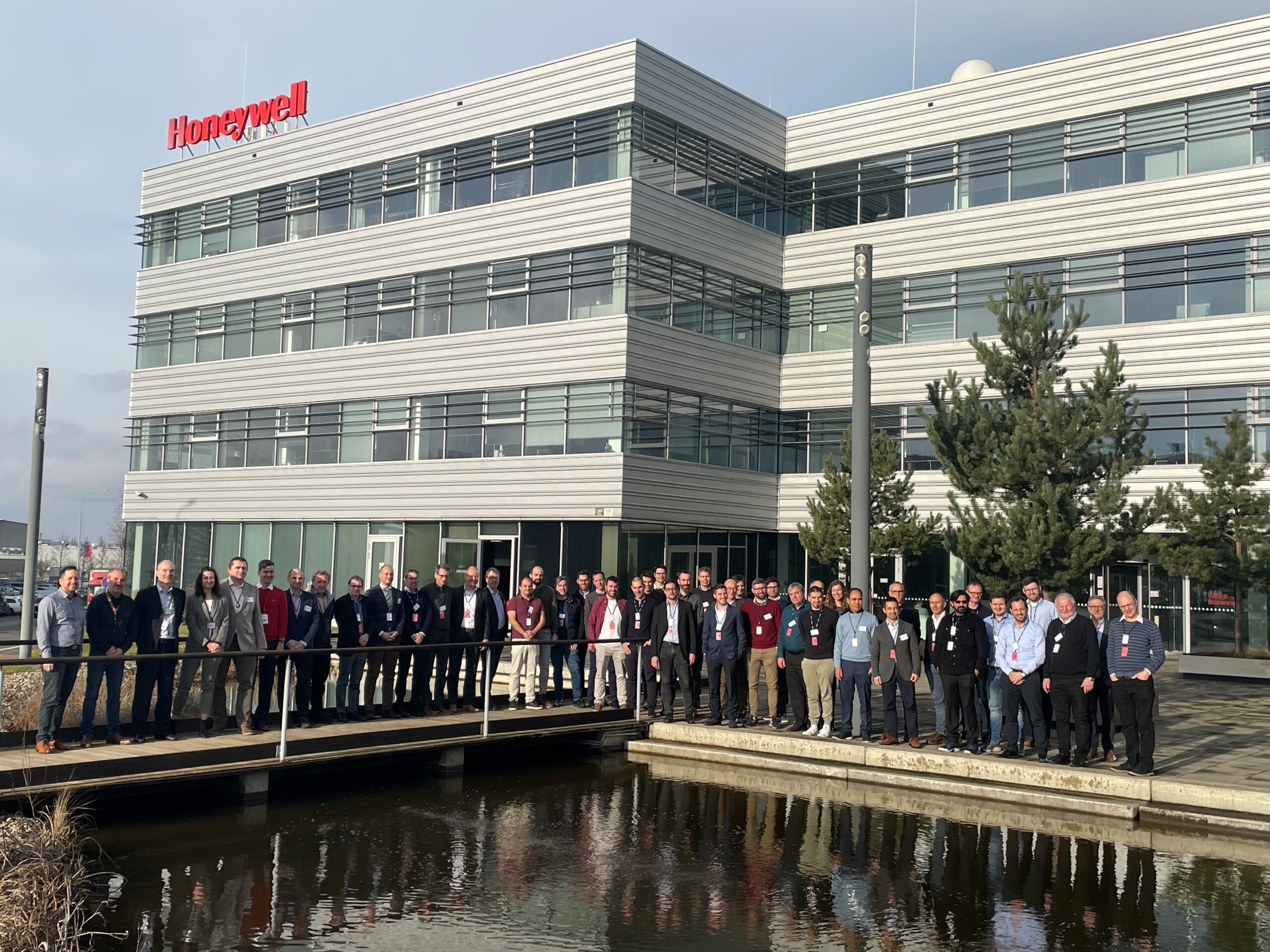Honeywell hosted a consortium of companies to its international development center in Brno, Czech Republic, recently to launch research and plans to develop advanced thermal management components and architectures for next-generation narrow body and regional, hybrid-electric aircraft as a critical enabler to reducing aircraft emissions.
Clean Aviation Project TheMa4HERA, which stands for Thermal Management for Hybrid Electric Regional Aircraft, encompasses 24 partners, including universities, research centers, equipment manufacturers and aircraft manufacturers, across 10 European countries. Honeywell will lead research out of its Brno facility. The project will review a variety of thermal management technology to compare and adapt to the architecture of next-generation aircraft.
“Pivotal to achieving the transformation to net-zero aviation will be the development of disruptive solutions that brings momentous gains in aircraft energy efficiency coupled with low- or zero-carbon energy sources. The launch of TheMa4HERA will kick-start the necessary work to drive a step change in aircraft performance, supporting the delivery of EU Green Deal ambitions,” Axel Krein, executive director of Clean Aviation.
“Project TheMa4HERA allows Honeywell to apply its more than 15 years of experience in leading collaboration on international research on programs such as Clean Aviation and SESAR,” said Joeri De Ruytter, regional business development and partnerships lead, Honeywell Aerospace. “We have a long history in thermal management design and manufacturing that dates back to the 1940s. In addition, each partner on this project brings its expertise and passion for advancing sustainable aviation technologies. Combined with our expansive portfolio and long-standing relationships with OEMs, this research provides the opportunity for a unified solution on current and future aircraft.”
The hybrid aircraft of the future will operate much differently than the aviation sector has grown accustomed to during the jet age. Thermal management will become more complex when aircraft manufacturers introduce electric and hybrid-electric aircraft with heat-generating fuel cells, batteries and power electronics. These aircraft will require more efficient and lightweight thermal management systems that will help aircraft manufacturers deliver on sustainability commitments, meet government regulations and enable aircraft to fly farther on less fuel.
Honeywell project partners, such as Collins Aerospace, will work across various workstreams, including research on thermal management architecture, air supply systems, air conditioning and system cooling, as well as testing and demonstration. Collins Aerospace subsidiary Nord Micro, based in Frankfurt, Germany, will work with Honeywell on cabin air distribution for the project.
“Collins’ Nord Micro business has decades of experience developing state-of-the-art cabin pressure controls and ventilation systems for commercial and military platforms,” said Ulrich Raab, general manager for Nord Micro. “Working together with Honeywell and the rest of the TheMa4HERA consortium, we will optimize the design of new cabin air solutions to increase energy efficiency and reduce carbon emissions on future aircraft.”
Clean Aviation recently announced awards to 20 projects under the Clean Aviation Strategic Research and Innovation Agenda covering 14 topics around three focus areas: hydrogen-powered aircraft, hybrid- electric regional aircraft, and ultra-efficient short- and medium-range aircraft. Honeywell has also been selected to implement project NEWBORN to develop a new generation of hydrogen fuel cells for the aviation industry. Resulting technologies will be introduced in 2035 with the intention to help enable the biggest step change reduction on aviation’s carbon impact by 2050, together with accelerated adoption of low or zero-carbon energy sources and sustainable fuels.
